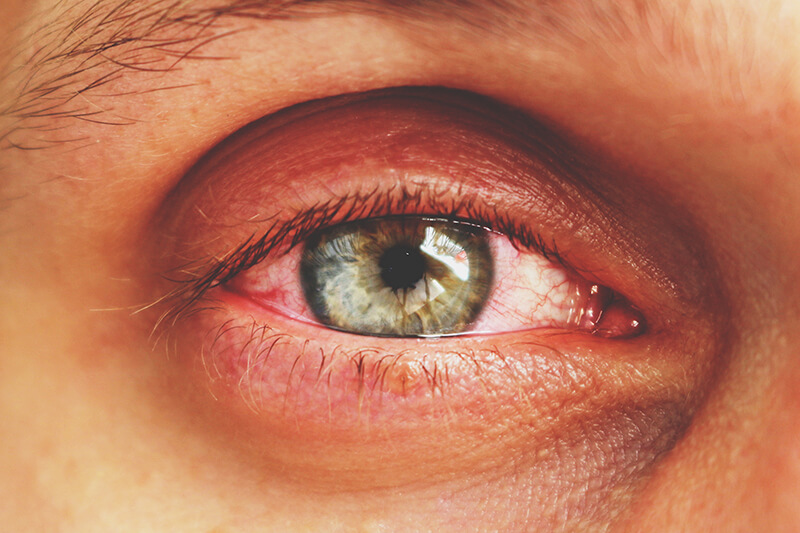Home » Common Vision Disorders » Conjunctivitis
Conjunctivitis
Conjunctivitis is a general term referring to any inflammation of the outside covering of the eye. With conjunctivitis, the eye becomes red and irritated. There are many causes and types of conjunctivitis. An allergic conjunctivitis is a specific type of conjunctivitis caused by sensitivity of the eye to an external source of irritation. Unlike an infectious conjunctivitis caused by bacteria or viruses, an allergic conjunctivitis is not contagious and usually does not endanger the eye.
There are many potential irritants in the air that can provoke an allergic conjunctivitis. Some of the most common include pollens, vegetable substances, grasses, dust, and animal danders. The key to successful treatment is to identify the often mysterious irritant and to avoid it. Occasionally, this will require seeing an allergist for skin tests.
Patients with allergic conjunctivitis may experience a variety of eye symptoms and signs depending on the type of irritant and the intensity of the allergic conjunctivitis. You may experience puffy and swollen eyelids, red eyes, burning eyes or a stringy discharge from the eyes. The most common symptoms are itching and tearing.
Treatment with appropriate eye drops, such as Vasocon A or Patanol, helps to relieve the various symptoms. Also, use of a washcloth with regular cold tap water as a cold compress twice daily helps to soothe the eyes. Place the cold compress gently across the eyelids. If your symptoms are not improved by the eye drops and compresses in one week, you should return for further evaluation. Ninety-percent of the time, symptoms of allergic conjunctivitis are greatly improved with these simple measures.
Contact lens wearers have special allergy problems. Usually, the cause is not the lenses themselves, but the cleaning solutions. The preservative agent”thimerosol” is a common cause of trouble and should be avoided. You probably should stop chemical disinfection and switch to either heat disinfection or hydrogen peroxide. If there is any question of thimerosol sensitivity, try Pliagel cleaner and a non-preserved saline such as Unisol. A good hydrogen peroxide disinfecting system is called Septicon.
If the symptoms persist and are not just a brief seasonal nuisance, we can recommend an allergist you can see for skin tests and possible desensitization shots.







